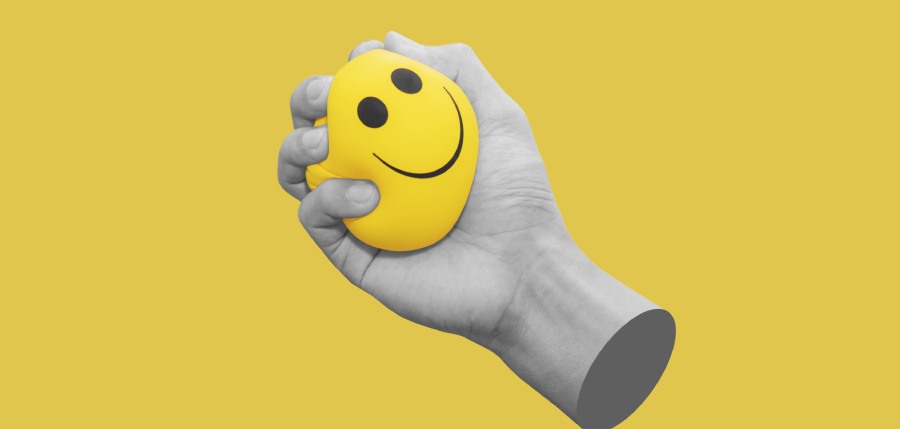
What Is Stress And Stress Management
In the modern world, stress has become a constant companion for many of us. It infiltrates our daily lives, impacting our health, relationships, and overall well-being. Understanding stress and learning how to manage it can transform how we experience life’s challenges, leading to a more balanced and fulfilling existence.
Understanding Stress
Stress is the body’s natural response to any demand or challenge. It triggers a cascade of physiological reactions, preparing us to face or flee from perceived threats. This response, known as the “fight-or-flight” reaction, can be beneficial in short bursts. However, when stress becomes chronic, it can have severe consequences on our health.
Types of Stress
- Acute Stress: This is short-term stress, the kind we experience in response to immediate pressures. It can be thrilling and exciting in small doses but can become exhausting if experienced too frequently.
- Chronic Stress: This is long-term stress resulting from ongoing situations, such as a difficult job or a challenging relationship. Chronic stress can lead to severe health issues if not managed properly.
The Impact of Stress
Stress affects every aspect of our lives. Physically, it can cause symptoms like headaches, muscle tension, fatigue, and digestive problems. Mentally, it can lead to anxiety, depression, and other mood disorders. Over time, chronic stress can weaken the immune system, making us more susceptible to illnesses.
Physical Effects
- Headaches: Frequent tension headaches or migraines.
- Muscle Tension: Stiffness or pain in the neck, shoulders, and back.
- Fatigue: Persistent tiredness and low energy levels.
Mental Effects
- Anxiety: Persistent worry or fear about everyday situations.
- Depression: Feelings of sadness, hopelessness, or a lack of interest in activities.
- Irritability: Short temper and frustration over minor issues.
Identifying Stressors
The first step in managing stress is identifying what triggers it. Common stressors include work-related pressures, financial concerns, personal relationships, and health problems. By recognizing these triggers, you can develop strategies to manage them more effectively.
Common Stressors
- Work Pressures: Deadlines, heavy workload, and job insecurity.
- Financial Issues: Debt, budgeting problems, and unexpected expenses.
- Personal Relationships: Conflicts, social obligations, and family issues.
- Health Problems: Chronic illnesses, lack of sleep, and poor nutrition.
Effective Stress Management Techniques
Managing stress involves a combination of strategies that address both the causes and symptoms of stress. These techniques can help you reduce stress levels and improve your overall well-being.
Mindfulness and Meditation
Mindfulness is the practice of staying present and fully engaging with the here and now. Meditation, a form of mindfulness, involves focusing your mind on a particular object, thought, or activity to train attention and awareness.
- Daily Practice: Spend at least 10 minutes a day meditating. Focus on your breath, letting go of any distracting thoughts.
- Mindful Activities: Engage in activities that promote mindfulness, such as yoga, tai chi, or simply walking in nature.
Regular Exercise
Physical activity is a powerful stress reliever. Exercise reduces levels of the body’s stress hormones, such as adrenaline and cortisol. It also stimulates the production of endorphins, chemicals in the brain that act as natural painkillers and mood elevators.
- Routine: Aim for at least 30 minutes of moderate exercise, like walking or jogging, most days of the week.
- Variety: Incorporate different types of exercise to keep it interesting and engaging.
Healthy Eating
A balanced diet can improve your body’s ability to handle stress. Certain foods can help reduce stress, while others can exacerbate it.
- Nutrient-rich Foods: Include plenty of fruits, vegetables, lean proteins, and whole grains in your diet.
- Hydration: Drink plenty of water throughout the day. Dehydration can increase stress levels.
Sleep Hygiene
Quality sleep is crucial for stress management. Poor sleep can increase stress hormones and exacerbate feelings of anxiety.
- Regular Sleep Schedule: Go to bed and wake up at the same time every day, even on weekends.
- Sleep Environment: Create a restful sleeping environment. Keep your bedroom dark, cool, and quiet.
Time Management
Poor time management can cause significant stress. Organizing your time effectively can reduce stress and increase productivity.
- Prioritize Tasks: Make a to-do list and prioritize tasks. Focus on completing the most important tasks first.
- Break Tasks Down: Divide large tasks into smaller, manageable steps. This can make them less overwhelming.
Social Support
Connecting with others can provide emotional support and reduce stress. Don’t be afraid to seek help when you need it.
- Talk to Someone: Share your feelings with friends, family, or a therapist.
- Join a Group: Participate in community groups or support groups where you can meet people with similar experiences.
When to Seek Professional Help
If your stress becomes overwhelming, don’t hesitate to seek professional help. Therapists and counsellors can provide strategies and tools to manage stress effectively.
Cognitive Behavioural Therapy (CBT)
CBT is a type of therapy that helps you identify and change negative thought patterns. It is highly effective for managing stress and anxiety.
Medication
In some cases, medication may be prescribed to help manage symptoms of stress and anxiety. Always consult with a healthcare professional before starting any medication.
What Is Stress Management Therapy
Stress management therapy encompasses a range of techniques designed to help individuals cope with stress. It aims to reduce stress levels, improve mental health, and enhance overall well-being. This therapy is often personalized to address the unique stressors and needs of each individual.
The Essence of Stress Management Therapy
At its core, stress management therapy seeks to identify stress triggers and develop effective coping mechanisms. It involves understanding the root causes of stress and learning how to respond to them healthily. By doing so, individuals can achieve a more balanced and peaceful state of mind.
Techniques Used in Stress Management Therapy
Various techniques are employed in stress management therapy, each targeting different aspects of stress and its effects on the body and mind. These techniques can be combined to create a comprehensive stress management plan tailored to an individual’s needs.
Cognitive Behavioural Therapy (CBT)
Cognitive Behavorial Therapy is a widely used approach in stress management. It focuses on identifying and changing negative thought patterns that contribute to stress. By altering these thoughts, individuals can reduce their stress levels and improve their mental well-being.
- Identifying Negative Thoughts: Recognizing harmful thought patterns that lead to stress.
- Replacing with Positive Thoughts: Learning to replace negative thoughts with positive, constructive ones.
Mindfulness and Meditation
Mindfulness and meditation are powerful tools in managing stress. These practices involve staying present and fully engaging with the moment, which can reduce anxiety and promote relaxation.
- Mindfulness Meditation: Practicing mindfulness meditation helps you stay grounded and reduces the impact of stress.
- Deep Breathing Exercises: Deep breathing techniques can calm the mind and body, providing immediate stress relief.
Physical Exercise
Regular physical activity is essential for managing stress. Exercise reduces levels of the body’s stress hormones, such as adrenaline and cortisol, and stimulates the production of endorphins, which are natural mood elevators.
- Aerobic Exercise: Activities like walking, jogging, or swimming can significantly reduce stress.
- Strength Training: Building physical strength can also enhance mental resilience.
Relaxation Techniques
Relaxation techniques are an integral part of stress management therapy. They help reduce muscle tension, lower blood pressure, and decrease heart rate, all of which contribute to a calmer state of mind.
- Progressive Muscle Relaxation: Tensing and then slowly releasing each muscle group to reduce physical tension.
- Visualization: Imagining a peaceful scene to help relax the mind and body.
Time Management Skills
Effective time management can greatly reduce stress. By organizing tasks and prioritizing responsibilities, individuals can avoid the overwhelming feeling of being constantly behind.
- Prioritizing Tasks: Identifying the most important tasks and focusing on them first
- Breaking Tasks Down: Dividing large projects into smaller, manageable steps.
Social Support
Having a strong support network can provide emotional comfort and practical assistance during stressful times. Engaging with friends, family, or support groups can alleviate feelings of isolation and stress.
- Building Relationships: Nurturing relationships with loved ones.
- Seeking Help: Joining support groups or talking to a counsellor when needed.
Benefits of Stress Management Therapy
Stress management therapy offers numerous benefits that can enhance your quality of life. By learning how to manage stress effectively, you can improve your mental, emotional, and physical health.
Improved Mental Health
Managing stress can reduce symptoms of anxiety and depression. It can also enhance your overall mood and cognitive function, leading to better decision-making and problem-solving abilities.
Enhanced Physical Health
Reducing stress can lower blood pressure, improve heart health, and strengthen the immune system. It can also lead to better sleep, which is crucial for overall well-being.
Better Relationships
By managing stress, you can improve your interactions with others. Reduced stress levels can lead to more patience, better communication, and stronger relationships.
Increased Productivity
Effective stress management can boost your productivity. When you’re not overwhelmed by stress, you can focus better and work more efficiently.
When to Seek Professional Help
While self-help strategies can be effective, there are times when professional help is necessary. If you find that stress is overwhelming your life, it may be time to consult a therapist.
Signs You Need Professional Help
Persistent Anxiety or Depression: If feelings of anxiety or depression are constant and debilitating.
- Physical Symptoms: Chronic headaches, fatigue, or other stress-related symptoms that don’t improve.
- Impact on Daily Life: When stress interferes with your ability to function at work or in social situations.
Finding the Right Therapist
Choosing the right therapist is crucial for effective stress management. Look for professionals who specialize in stress management and have a good track record of helping individuals cope with stress.
What Is Stress Management Counselling
Stress management counselling is a therapeutic approach designed to help individuals identify, understand, and cope with stress. It aims to reduce stress levels, improve mental health, and enhance overall well-being. Through personalized strategies and professional guidance, individuals can learn to manage stress more effectively.
The Essence of Stress Management Counselling
At its core, stress management counselling seeks to uncover the root causes of stress and develop healthy coping mechanisms. It involves exploring stress triggers and learning how to respond to them constructively. This process helps individuals achieve a more balanced and peaceful state of mind.
The Benefits of Stress Management Counselling
Engaging in stress management counselling offers numerous benefits that can significantly improve one’s quality of life. These benefits extend to mental, emotional, and physical health, creating a holistic approach to well-being.
Improved Mental Health
Stress management counselling can alleviate symptoms of anxiety and depression. By learning to manage stress, individuals often experience improved mood, better cognitive function, and enhanced emotional resilience. This leads to better decision-making and a more positive outlook on life.
Enhanced Physical Health
Chronic stress can take a toll on the body, leading to issues such as high blood pressure, heart disease, and a weakened immune system. Stress management counselling helps reduce these risks by teaching techniques that lower stress hormones and promote physical health.
Better Relationships
Stress often strains relationships, leading to misunderstandings and conflicts. Counseling provides tools to improve communication and emotional regulation, fostering healthier interactions with others. As stress levels decrease, patience and empathy increase, strengthening personal and professional relationships.
Increased Productivity
Effective stress management boosts productivity. When stress is managed, focus improves, and efficiency increases. This results in better performance at work and a more satisfying professional life.
Techniques Used in Stress Management Counselling
Stress management counselling employs various techniques tailored to individual needs. These techniques help address different aspects of stress and its effects on the body and mind.
Cognitive Behavioural Therapy (CBT)
Cognitive Behavioural Therapy is a cornerstone of stress management counselling. CBT focuses on identifying and changing negative thought patterns that contribute to stress. By altering these thoughts, individuals can reduce their stress levels and improve their mental well-being.
- Identifying Negative Thoughts: Recognizing harmful thought patterns that lead to stress.
- Replacing with Positive Thoughts: Learning to replace negative thoughts with positive, constructive ones.
Mindfulness and Relaxation Techniques
Mindfulness and relaxation techniques are powerful tools in stress management. These practices involve staying present and fully engaging with the moment, which can reduce anxiety and promote relaxation.
- Mindfulness Meditation: Practicing mindfulness meditation helps you stay grounded and reduces the impact of stress.
- Deep Breathing Exercises: Deep breathing techniques can calm the mind and body, providing immediate stress relief
- Progressive Muscle Relaxation: Tensing and then slowly releasing each muscle group to reduce physical tension.
Time Management Skills
Effective time management can greatly reduce stress. By organizing tasks and prioritizing responsibilities, individuals can avoid the overwhelming feeling of being constantly behind.
- Prioritizing Tasks: Identifying the most important tasks and focusing on them first.
- Breaking Tasks Down: Dividing large projects into smaller, manageable steps.
- Setting Realistic Goals: Establishing achievable goals to maintain a steady workflow.
Physical Activity
Regular physical activity is essential for managing stress. Exercise reduces levels of the body’s stress hormones, such as adrenaline and cortisol, and stimulates the production of endorphins, which are natural mood elevators.
- Aerobic Exercise: Activities like walking, jogging, or swimming can significantly reduce stress.
- Strength Training: Building physical strength can also enhance mental resilience.
- Consistency: Incorporating exercise into your routine consistently to maintain benefits.
Social Support
Having a strong support network can provide emotional comfort and practical assistance during stressful times. Engaging with friends, family, or support groups can alleviate feelings of isolation and stress.
- Building Relationships: Nurturing relationships with loved ones.
- Seeking Help: Joining support groups or talking to a counselor when needed.
When to Seek Stress Management Counselling
Knowing when to seek professional help is crucial for effective stress management. If stress becomes overwhelming and interferes with daily life, it may be time to consult a counsellor.
Signs You Need Counselling
- Persistent Anxiety or Depression: If feelings of anxiety or depression are constant and debilitating.
- Physical Symptoms: Chronic headaches, fatigue, or other stress-related symptoms that don’t improve.
- Impact on Daily Life: When stress interferes with your ability to function at work or in social situations.
Finding the Right Counsellor
Choosing the right counsellor is essential for effective stress management. Look for professionals who specialize in stress management and have a proven track record of helping individuals cope with stress.
What Is Stress And Stress Management – Key Takeaways
- Stress is a constant companion in modern life, affecting health, relationships, and well-being.
- Stress is the body’s response to demands, triggering a “fight-or-flight” reaction.
- Acute stress is short-term and manageable, while chronic stress is long-term and harmful.
- Stress can cause headaches, muscle tension, fatigue, anxiety, depression, and irritability.
- Common stressors include work pressures, financial issues, personal relationships, and health problems
- Managing stress involves techniques like mindfulness, regular exercise, healthy eating, and proper sleep.
- Mindfulness involves staying present and meditating for at least 10 minutes daily.
- Regular exercise, such as walking or jogging, reduces stress hormones and boosts mood.
- A balanced diet and staying hydrated can improve stress management.
- Quality sleep, with a consistent schedule and a restful environment, is crucial.
- Effective time management, prioritizing tasks, and seeking social support are essential.
- Professional help, such as Cognitive Behavioural Therapy (CBT) or medication, may be needed for overwhelming stress.
What Is Stress And Stress Management – FAQ
Q. What is stress?
Stress is the body’s natural response to any demand or challenge. It triggers physiological reactions like the “fight-or-flight” response. While short-term stress can be beneficial, chronic stress can negatively affect health.
Q. What are the types of stress?
There are two main types of stress: acute stress and chronic stress. Acute stress is short-term and usually related to immediate pressures. Chronic stress is long-term, often resulting from ongoing situations like a difficult job or relationship.
Q. How does stress affect physical health?
Stress can lead to various physical symptoms, including headaches, muscle tension, fatigue, and digestive problems. Chronic stress can weaken the immune system, making individuals more susceptible to illnesses.
Q. What are common stress management techniques?
Effective stress management techniques include mindfulness and meditation, regular exercise, healthy eating, and maintaining a consistent sleep schedule. These practices help reduce stress hormones and promote overall well-being.
Q. When should one seek professional help for stress management?
Professional help should be sought when stress becomes overwhelming and interferes with daily life. Persistent anxiety, depression, or physical symptoms like chronic headaches or fatigue are signs that counselling or therapy may be necessary.
Search
Categories
Related Articles

What Is Cash Flow Management In Business
Cash flow management is the lifeblood of any business, large or small. It’s the art of balancing the money coming in with the money going out, ensuring that a business can meet its obligations and thrive. Mastering cash flow management empowers companies not only to survive but to strategically plan for future growth. Let’s dive…
Read More
What Is Stress And Stress Management
In the modern world, stress has become a constant companion for many of us. It infiltrates our daily lives, impacting our health, relationships, and overall well-being. Understanding stress and learning how to manage it can transform how we experience life’s challenges, leading to a more balanced and fulfilling existence. Understanding Stress Stress is the body’s…
Read More
How To Manage Stress Management
Stress is a constant companion in our fast-paced world. It can affect our health, relationships, and overall quality of life. However, understanding and managing stress can transform how we experience daily challenges. This article explores practical strategies for stress management, guiding you towards a calmer, more balanced life. Understanding Stress Stress is the body’s response…
Read More
Why Stress Management Is Important
In the intricate dance of life, where numerous demands tug at our attention, the importance of managing stress cannot be overstated. It is the silent undercurrent that can dictate the quality of our days and the tranquillity of our minds. Understanding the depth of stress management’s impact can enlighten and empower us to lead more…
Read More
What Are The Benefits Of Stress Management
In our brisk and often bustling lives, stress management is not merely a practice but a necessity. Understanding and harnessing the profound benefits of stress management can transform our daily experiences, leading to a richer, more fulfilling life. This article delves into the essential advantages of managing stress effectively and provides insights into how it…
Read More
What Does The Bible Say About Stress Management
In our journey through life, stress is an inevitable companion. It can cloud our days and unsettle our nights. Yet, the ancient texts of the Bible offer a wealth of wisdom on managing stress, urging us to find peace and strength beyond our earthly troubles. This article explores the biblical perspective on stress management, offering…
Read More




